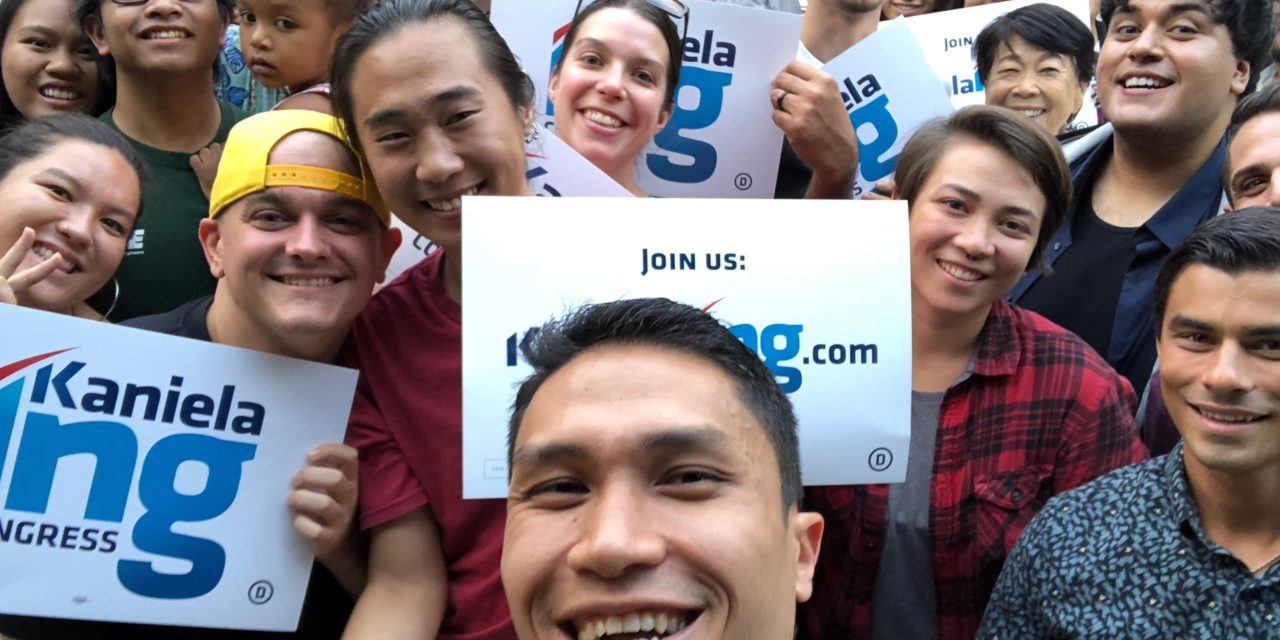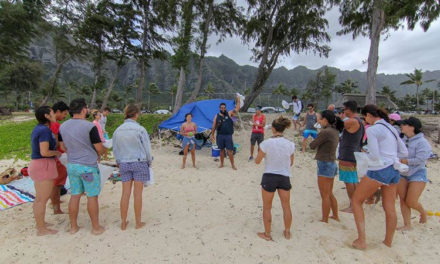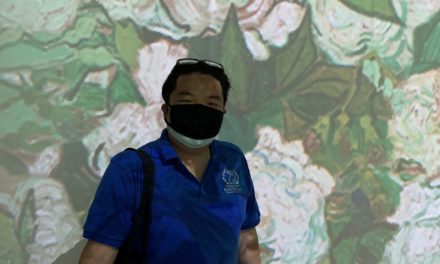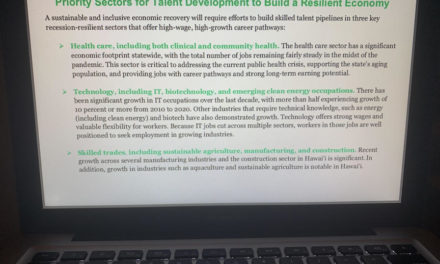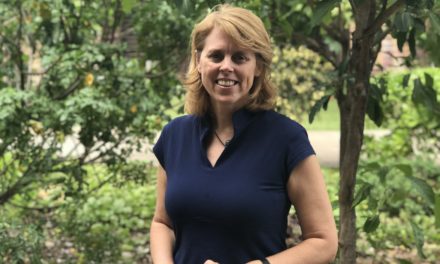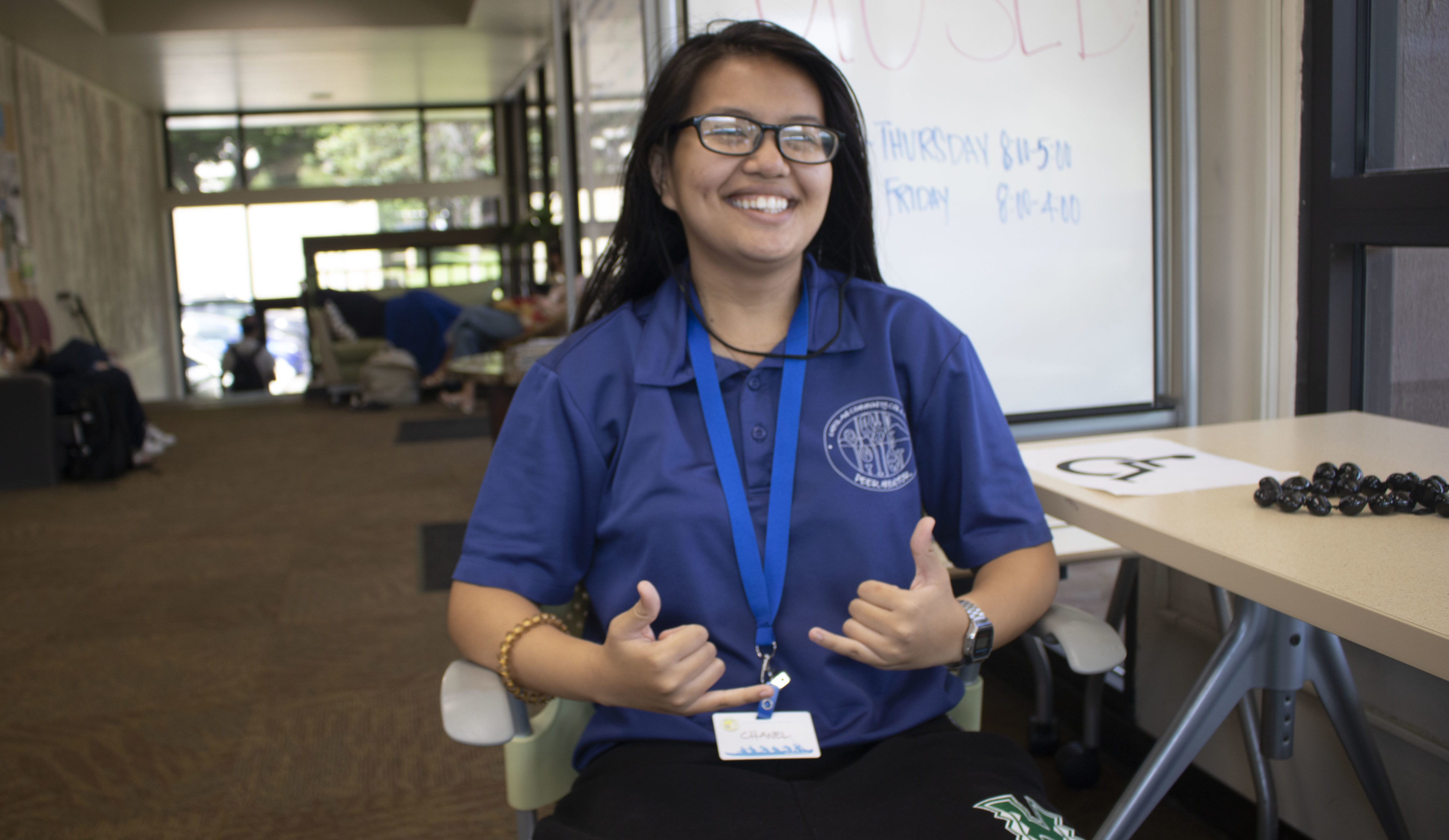By Mark Ladao | Staff Writer
When state Rep. Kaniela Ing decided to run for Hawaiʻi’s 1st Congressional District in November, he did so with the intention of further pushing progressive ideas, which include a $15 minimum wage, tuition-free college education and affordable housing to fight homelessness.
“When the seat opened for Congress, it’s such a rare opportunity to make a difference on a larger level,” said the millennial legislator in a Skype interview in early May.
Congresswoman Colleen Hanabusa, a Democrat, has decided to vacate her seat in the 1st Congressional District, which covers the urban areas of Oʻahu, to run for governor of Hawaiʻi, and the primaries of both elections will be held Aug. 11. Though Ing is the youngest of the four candidates — the others being state Sen. Donna Kim, Attorney General Doug Chin and Councilman Ernie Martin — at only 29 years old, he decided to give Congress a shot.
Many of the differences Ing hopes to make in Congress revolve around helping the working class.
On the homepage of his website, Ing’s top three goals are to “fix the rigged economy,” “act on climate change” and “impeach [President Donald] Trump.”
“I think a lot people understand that our system is broken,” he said. “The things that people want, the issues with broad majority support, don’t even see the light of day, when issues that help the already well-off tend to be pushed to the fore.”
The Working-Class Candidate
Ing believes his progressive ideology comes from growing up in a working-class family.
His father worked at a hotel and his mother was a shoe clerk while he was growing up on Maui, and he said that he had to start working in pineapple fields at 14 years old to help his family financially. Even then, Ing said, his family “relied on our community and government programs” to survive.
Ing, who is part Hawaiian, said his family was Republican growing up, but as a teenager he became more progressive.
“We were actually hardcore Republicans, as many people are in the working class, because we’re told, ‘If you’re failing, it’s your fault, you just gotta work harder,’” he said. “But … I’ve never seen anyone work harder than my mom … but we still needed so much help.”
According to Ing, he is the only candidate of those running for the 1st Congressional District not compromised regarding his ability to speak out on the problems that big corporations create for the general public. In April, Civil Beat sifted through data from the Federal Election Commission, showing that Kim and Martin received donations from wealthy lobbyists, developers and contractors who have ties to companies such as Nan Inc., a major construction company in Hawaiʻi. Chin has received thousands in donations from individuals employed by Dawson Technical, a company that provides a variety of services, from construction to cyber solutions.
“I can talk about … healthcare as a human right, because I’m not beholden to insurance companies and big pharma,” he said. “I can talk about how we need a 100 percent renewable energy goal because I’m not beholden to oil companies. All three of my opponents, they’re good people, but they took money from, like, Hawai‘i Gas, and that matters.”
According to FEC data, Ing has also received donations from businesses including Lehbros Limited, a real estate company, and Snorkel Bob’s, which rents out water sports equipment.
Ing in Government
In college at the University of Hawai‘i at Mānoa, Ing said he was “fully apolitical — just sports and music” — and even had dreadlocks at one point.
But after then Gov. Linda Lingle introduced heavy budget cuts to the UH system and mandatory furloughs for public school students and state workers in 2009 to reduce the state’s budget deficit, Ing decided to run for president of UH Mānoa’s student government. Ing said the budget cuts affected his his major, requiring him to stay in school longer.
But through a grassroots campaign, in which Ing said he held barbecues on campus, gave short talks in shuttles and lecture halls before class and raised money by selling donated T-shirts, he was elected president of the university’s Associate Students of the University of Hawai‘i in 2009.
He followed the same campaign strategy when he successfully ran to be a state legislator in 2012.
“I just knocked on every door personally,” he said. “I was working at Four Seasons from 4 a.m. to noon cleaning locker rooms, and I just knocked on doors until sunset, and then I did all my emails and stuff after that … every day.”
As a state legislator, Ing responded to the lawsuits filed by Facebook’s Mark Zuckerberg against Native Hawaiians over disputed lands he purchased on Maui, and in a CBC Radio article in 2017, compared Zuckerberg to sugar barons who “used the same legal mechanism … to displace thousands of Hawaiians families from their ancestral lands.”
Ing has also sponsored legislation to increase Hawaiʻi’s minimum wage to $15 an hour and has introduced several bills related to protecting marine life and coral ecosystems.
Current Controversies
Ing might appear to be the ideal candidate for Congress for working class people involved in what he said is an inevitable “populist uprising,” the movement to take power and money from the wealthy to support the struggling lower classes, but he has not been without his share of controversy that may hurt his reputation.
Last month, Hawaiʻi News Now reported that Ing had more than $18,000 worth of undisclosed campaign donations since 2012. HNN also reported on the inaccurate information regarding his academic record on LinkedIn, which falsely stated that he had received a master’s degree from UH Mānoa.
In 2016, the Honolulu Star-Advertiser reported a ticket Ing received for driving an uninsured car, which Ing disputed. The article reported that Ing had changed his explanation for why the ticket was wrongly issued and had been arrested on a bench warrant because he had failed to appear in court for the ticket.
Earlier this year, Ing also called the late Sen. Daniel K. Inouye an “accused serial rapist.” Inouye faced sexual harassment allegations in the early ’90s when he was a senator in Hawaiʻi.
Ing accepted fault for the unreported donations, but attributed it to long hours working at the Four Seasons Resort and said there was nothing malicious about them.
“If there were any mistakes, I took full responsibility for it,” he said. “But I think it’s really clear that they’re unintentional.”
Ing said his grassroots campaign may have contributed to some of those mistakes. He said he gets many small donations and claims to do his own accounting.
“In my races, I’ll get like 900 $5 donations, and it’s like, I’ve got to report that myself,” he said. “You’re gonna make mistakes.”
Ing also admitted his mistakes regarding his LinkedIn information but dismissed the importance of the website.
“I think LinkedIn is sort of a joke for most of us,” he said. “The only people I know who use LinkedIn are like 60 years old because it’s like a phishing website. You put your information on there and companies use it to exploit your data.”
However, Ing stood by his comments about the sexual harassment allegations against Sen. Inouye, saying that, despite the criticism, it was something that he needed to address in light of the growing #MeToo movement around the world, the goal of which is to end sexual violence.
“Daniel K. Inouye, the fact that we named an airport after him, is so insulting to millions of women,” he said. “If people in power aren’t willing to use their positions to push issues like that … what good are we?”
Being a Target to Opponents
To Ing, this willingness to address such issues makes him a target for his opponents, attributing the fundraising criticism to expensive opposition research he said is being done to smear him and send him “back to the cave of irrelevance that he came from.”
Ing said the attacks from the other congressional candidates was a “wake-up call,” especially when it calls into question his trustworthiness and affects his relationship with friends and family.
“Yeah it sucks personally, but the movement is bigger than one person,” he said. “If I were to just fold over, then that would be demoralizing for a lot of people, so I’ve just got to keep going.”
Ing said that candidates usually spend a lot of money on opposition research, particularly on themselves, so that they know what to expect. Ing said that it is too expensive for him to spend on the research, so he is not sure what will come next. He also said that he did not want to “mudsling” at his opponents.
“I never thought, like, I should be digging up personal stuff about my opponents,” he said. “I thought that was like, not Hawai‘i style, but I guess that’s how it’s done in 2018. That’s why I’m the only one getting blasted.”
However, Ing attacked one of his opponents, Attorney General Doug Chin, for accepting money to lobby for private prisons, saying it should be “a disqualifier for anyone pretending to be a Democrat,” and criticized Chin for belonging to a church — the O‘ahu Church of Christ — that does gay-to-straight conversion therapy.
While Ing believes such criticism is relevant to campaigns and falls beyond the realm of mudslinging, Chin responded in an article in the Honolulu Star-Advertiser last February by saying Ing was using “Trumpian tactics” and “seems determined at all costs to say just about anything to get into the news but talk about issues.”
Ing said that these days he spends most of his time canvassing and calling for donations, like he used to as a college student and when he got elected state legislator as a 23-year-old.
“I just want to be where I can make the … biggest impact for my state and push my progressive values as far as I can,” he said. “It seems right now that would be Congress. … I’m really dedicated to the work I do.”

